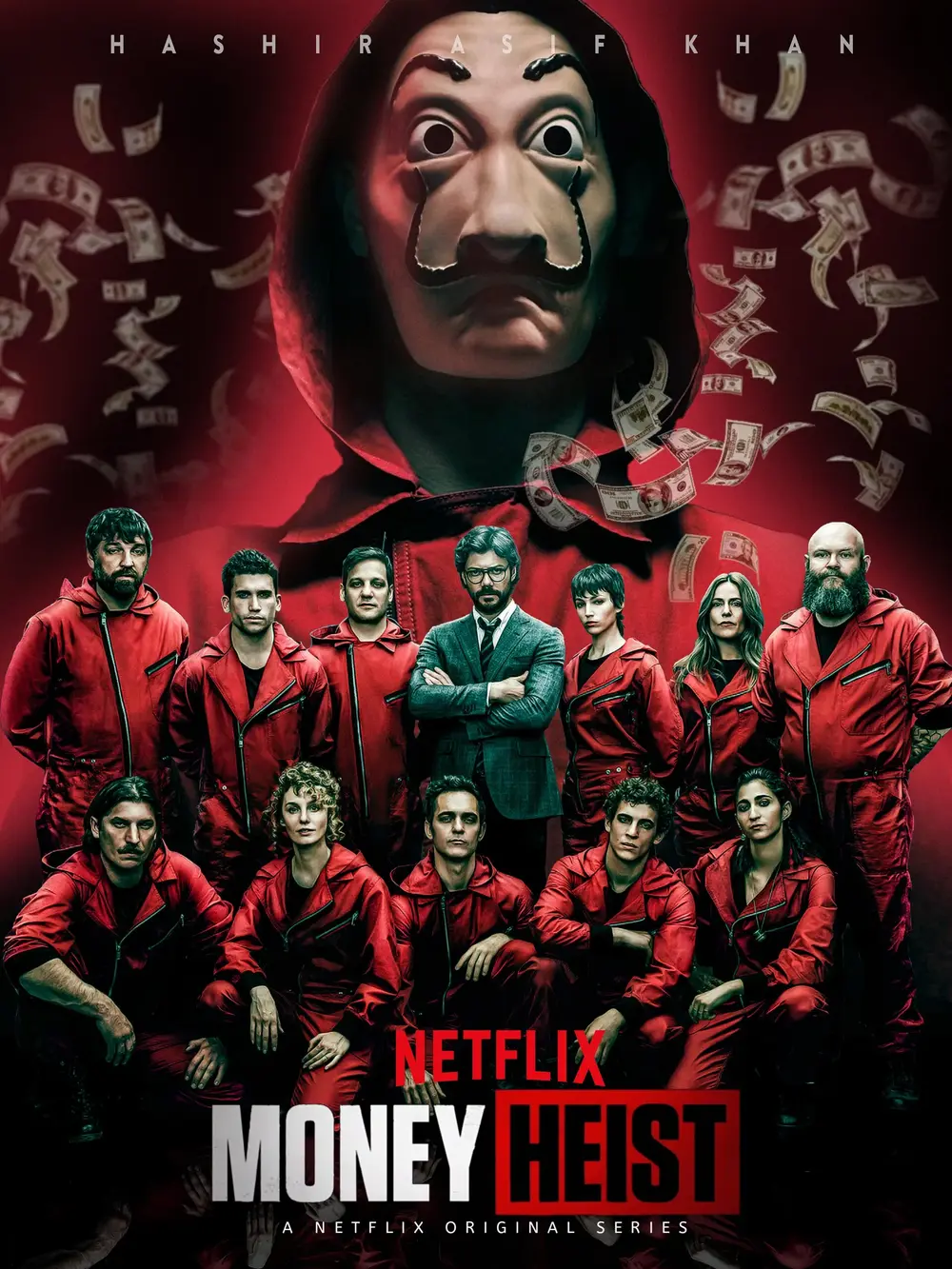Money Heist, created by Álex Pina, is not only a global entertainment phenomenon but also a masterclass in strategy, leadership, and team dynamics. The series, centered around a group of thieves led by “The Professor,” shows how meticulous planning, adaptability, and effective leadership can make a difference in complex and high-pressure situations.
Although the context of the series revolves around a large-scale heist, the lessons drawn from the relationships and decisions of its characters are applicable both personally and professionally. Below, we explore how Money Heist inspires and challenges traditional notions of leadership, teamwork, and conflict resolution.
Strategy and Planning: The Art of Foreseeing the Unexpected
The central axis of Money Heist is the meticulous planning of “The Professor.” Every detail of the heist is designed with precision, contemplating alternative scenarios and possible setbacks. This ability to foresee and plan is fundamental in any professional field:
- Thorough analysis: Before acting, “The Professor” spends months studying variables, anticipating risks, and creating contingency strategies. In the business world, this approach underscores the importance of conducting deep analysis before implementing major projects.
- Adaptability to the unexpected: Despite the planning, the team faces numerous unforeseen events. Their ability to quickly adapt and make decisions under pressure demonstrates that a flexible and resilient strategy is more effective than a rigid plan.
- Emphasis on purpose: The planning not only seeks the success of the heist but also fulfills a greater purpose that unites the team. Similarly, organizations need to articulate a clear purpose that inspires and aligns their members.
Leadership in Critical Situations: “The Professor” as a Model Strategic Leader
The leadership of “The Professor” is one of the pillars of Money Heist. His ability to guide the team, even in the most tense situations, highlights several key qualities of an effective leader:
- Clear and effective communication: Throughout the series, “The Professor” communicates instructions precisely, ensuring everyone understands their role within the plan. This clarity minimizes errors and strengthens team trust.
- Empowerment of the team: Although he makes crucial decisions, he trusts each member’s ability to execute their tasks. This leadership style fosters autonomy and individual responsibility, essential in high-performance teams.
- Emotional management: In crisis situations, “The Professor” remains calm, transmitting serenity to the team. In work environments, a leader who manages their emotions intelligently can reduce team anxiety and make better decisions.
- Adaptation to failure: Even when the original plan fails, “The Professor” demonstrates remarkable resilience, adjusting his strategy without losing focus. This ability to turn failure into an opportunity is crucial in any professional context.
Teamwork: Diversity and Unity Under Pressure
The team in Money Heist is composed of characters with different skills, personalities, and motivations. Despite their differences, they manage to work together towards a common goal, reflecting fundamental lessons about teamwork:
- Value of diversity: Each team member brings a unique skill to the plan, from Helsinki’s physical strength to Tokyo’s mental agility. In a work environment, leveraging the diversity of talents and perspectives enriches projects and improves results.
- Conflict resolution: Disagreements are inevitable, but the series shows how to face and resolve them without losing sight of the goal. In high-performance teams, the ability to manage conflicts constructively is essential.
- Mutual trust: Although tensions are high, the characters depend on each other to survive. This mutual trust is a critical component for effective collaboration in any team.
Crisis Management: Maintaining Composure Under Pressure
The narrative of Money Heist unfolds in an environment of constant pressure. The team not only faces internal challenges but also external threats that require quick and effective responses. Valuable lessons emerge from this dynamic:
- Quick and calculated decisions: In critical situations, the ability to make decisions based on rapid and logical analysis is vital to avoid chaos.
- Constant communication: During the heist, the team maintains open and direct communication to coordinate actions and avoid mistakes. This principle is applicable in any high-pressure situation in the work environment.
- Self-control: The series illustrates how self-control and discipline can make the difference between success and failure. Cultivating these qualities is essential for managing crisis situations in any field.
Ethics and Purpose: Beyond the Heist
Despite being a story about a robbery, Money Heist raises deep questions about ethics and collective purpose. The team not only seeks to enrich themselves but also to send a message of resistance to the system. This approach highlights the importance of connecting actions with larger values:
- Shared purpose: A team motivated by a common purpose is more resilient and cohesive. In companies, this purpose can be a mission or vision that inspires employees to work together towards a greater goal.
- Reflection on impact: The series also invites reflection on the consequences of actions, a reminder that ethical decisions are as important as results.
Conclusion: Money Heist as a Metaphor for Teamwork and Leadership
Beyond its captivating plot, Money Heist offers a deep exploration of human dynamics under pressure. From strategy to emotional management, the series illustrates how effective leadership, teamwork, and a shared purpose can overcome even the greatest challenges.
Whether in a fictional heist or the corporate world, the lessons of Money Heist resonate universally. The series reminds us that success depends not only on technical skill but also on trust, communication, and the ability to adapt to change. Ultimately, Money Heist is a celebration of human resilience and the importance of collaboration, making it clear that even the most ambitious goals are achievable when a team works united with passion and purpose.



